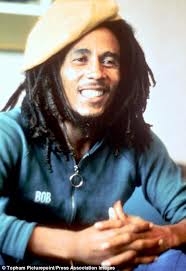
The Wailers, Third World, and special guests will all be present at Harlem’s iconic Apollo Theater to remember Bob Marley, reggae music’s most well-known performer and cultural hero. The event is expected to be so well attended that there are two separate performances happening that night, one at 8pm followed by an 11pm repeat. Organized to commemorate the 35 years since Marley made his Apollo debut, the spectacle has tickets available for as low as $24.50 for Apollo Advantage members. Not a member? You can still get yourself a ticket for as low as $35, and up to $80 if you want to spring for a premium center orchestra seat. Regardless of where one sits, the show will be one for the ages; reggae culture has come to represent much more than music, and its culture in all its forms will be celebrated with glee and love to honor the man who helped to make it a global phenomenon.
Bob Marley began making music in the early sixties with the Wailers, a group of musicians who have gone on to play for nearly 24 million people since his death. Hailing from Jamaica, Marley would eventually launch himself into a solo career that has made him a household name, due to the popularity of his messages of peace, respect, love, and triumph. Early in his career, Marley worked with legendary reggae producers like Lee “Scratch” Perry and Coxsone Dodd. After formally adopting Rastafari ideology, and began to grow the dreadlocks that would remain a signature part of his identity for the rest of his life. He achieved success with the Wailers while signed to Jamaican reggae labels, but it was their first release on Island Records (a division of Universal Music Group) that introduced them to an international audience. Catch a Fire brought Bob Marley on tour to Europe and the United States, earning him fans who would eagerly await his return as a solo performer a handful of years later. 1975 brought him his international breakthrough hit; “No Woman, No Cry” was a single off his Natty Dread album that helped to solidify his popularity moving forward. The following year, he released Rastaman Vibration, his first release to break the top 10 on the Billboard 200 charts. Exodus, the album that featured the single for which this event is named, was released the following year following a failed assassination attempt on the singer’s life. He would go on to release four more studio albums, although Confrontation would be released posthumously. The iconoclast would eventually succumb to melanoma in 1981, after refusing to have an affected toe amputated based on his religious beliefs.
The legacy he left behind is universal and seemingly never-ending. Bob Marley posters seem to be ubiquitous in college dorm rooms and his name has become more synonymous with reggae music than any artist before or since. Several of his sons have gone on to pursue successful musical careers, including Ziggy, Damian, and Stephen. Time magazine in 1999 called Exodus the Album of the Century, and the BBC called “One Love” the song of the millennium. Fans in the tri-state area are urged to attend what promises to be more than just a concert, but also a righteous party. Check out the video to watch one of his last concerts, in full.




You must log in to post a comment.